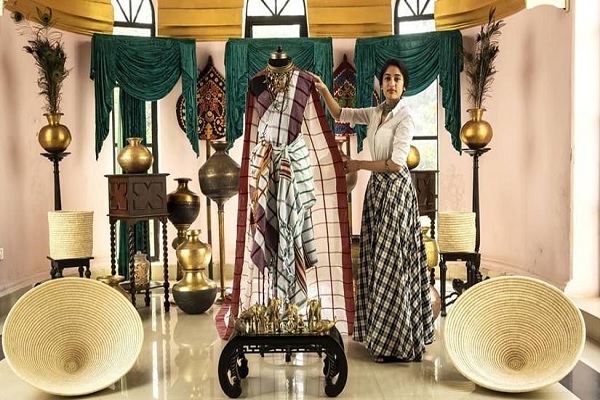
Follow us Now on Telegram ! Get daily 10 - 12 Interesting Updates. Join our Telegram Channel https://t.me/OhWomen
Download Telegram App before Joining the Channel
Erstwhile royal families and historic properties have come together to pay tribute to Indias textile heritage by working with karigars (or local artisan designers) from three states of India (Mayurbhanj in Odisha, Jaisalmer in Rajasthan and Gwalior in Madhya Pradesh) to launch a garment installation Karkhana Chronicles for virtual viewing.
The campaign via curated installations in India's palaces and forts for three months aims to pay tribute to its rich textile history by working with its custodians- the local artisans.
Each royal house has set up a textile installation inspired by local arts they like to promote. Through the campaign, they aim to start a conversation on circularity, history and social equity, while striving to ensure recognition and upliftment of local Indian artisans.
Alongside the campaign's attempt to revive slow fashion in India and to breathe new life into India's textile arts, it also aims to preserve the dying sustainable textile arts and practices of local artisan communities across India by documenting and digitally preserving these practices.
Talking about the campaign and its impact on artisans, Jema Akshita M. Bhanjdeo, the royal representative from the Belgadia Palace, Mayurbhanj, Odisha said: "Our local artforms showcase our cultural heritage and through Karkhana Chronicles, we show our pride and hope that the traditional craft and textile practices get the utmost love and recognition that they deserve."
Sharing his thoughts on the sustainability of Indian textile arts, Yuvraj Chaitanya Raj Singh, the crown prince of the erstwhile Kingdom of Jaisalmer, said: "Sustainability has historically been one of the key driving forces for the local communities of Jaisalmer as we have always had to create garments in harmony with natural elements due to the desert terrain. Jaisalmer has always been a point where eastern and western cultural influence has been reflected in our rich textile trade as we were on the silk route which used to cut through this region."
Source - IANS